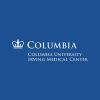- Understanding Heart Disease and Nutrition’s Role
- Key Vitamin Supplements for Heart Health
- Scientific Evidence and Expert Insights on Supplements
- Real-World Examples of Vitamin Supplement Use in Heart Disease
- Safe and Effective Supplementation Practices
- HeartCare Hub Support for Cardiovascular Wellness
1. Understanding Heart Disease and Nutrition’s Role
Heart disease, encompassing conditions such as coronary artery disease and heart failure, remains a leading health concern globally. While factors like genetics and lifestyle play significant roles, nutrition stands as a cornerstone in both prevention and management. Among nutritional strategies, vitamin supplements have attracted attention for their potential to support cardiovascular health. Vitamins act as cofactors in crucial biochemical reactions, influence inflammation, and promote vascular integrity—all vital to maintaining a healthy heart.
Nutrition is not a substitute for medical treatment but serves as a powerful adjunct. Understanding which vitamins contribute most effectively to heart health helps individuals make informed choices in their wellness journeys.

2. Key Vitamin Supplements for Heart Health
Several vitamins have demonstrated benefits for heart disease prevention and support:
Capital Health Medical Center – Hopewell
capital health medical center hopewell
1 Capital Way, Pennington, NJ 08534, USA

2.1 Vitamin D
Often called the “sunshine vitamin,” Vitamin D plays an important role in regulating blood pressure and reducing inflammation. Deficiency in vitamin D has been linked to increased risk of hypertension and cardiovascular events. Supplementation can help restore optimal levels, particularly in individuals with limited sun exposure.
2.2 B Vitamins (B6, B12, Folate)
B vitamins help lower homocysteine levels, an amino acid associated with arterial damage and increased heart disease risk. By reducing homocysteine, these vitamins may protect blood vessels and improve vascular function.
2.3 Vitamin E
As a potent antioxidant, vitamin E protects cell membranes from oxidative stress, a key factor in the development of atherosclerosis. However, high doses require caution and medical supervision due to potential bleeding risks.
2.4 Omega-3 Fatty Acids (Often in Supplement Form)
Though not a vitamin, omega-3 supplements are closely linked to cardiovascular health, reducing triglycerides and inflammation, and supporting heart rhythm stability.
3. Scientific Evidence and Expert Insights on Supplements
Research on vitamin supplements and heart disease presents a complex but promising picture. Numerous studies suggest that maintaining adequate vitamin levels correlates with lower incidence of cardiovascular events. For example, meta-analyses have highlighted how vitamin D supplementation can modestly reduce blood pressure and inflammation markers.
Experts emphasize, however, that supplements should complement—not replace—a balanced diet rich in fruits, vegetables, whole grains, and lean proteins. Supplementation tailored to individual deficiencies and under medical supervision maximizes safety and effectiveness.
3.1 Personalized Supplement Plans
Blood tests to determine vitamin levels help create targeted supplementation strategies. This approach avoids unnecessary intake and focuses on correcting specific deficiencies that may impact heart health.
4. Real-World Examples of Vitamin Supplement Use in Heart Disease
Consider Sarah, a 58-year-old woman with early-stage coronary artery disease who struggled with fatigue and poor circulation. After consulting her cardiologist, she began vitamin D and B-complex supplementation alongside lifestyle changes. Over several months, Sarah experienced improved energy and more stable blood pressure readings, illustrating how supplementation, paired with medical guidance, supports cardiovascular health.
Similarly, a recent clinical trial involving patients with high triglycerides showed that omega-3 supplementation reduced cardiovascular events significantly over two years. These real-world cases underscore the practical benefits and importance of integrating vitamin supplements responsibly.
5. Safe and Effective Supplementation Practices
Proper use of vitamin supplements requires caution and knowledge. Here are key practices:
5.1 Consult Healthcare Providers
Always discuss supplementation with your doctor, especially if you have existing heart conditions or take other medications to avoid adverse interactions.
5.2 Avoid Megadoses Unless Prescribed
Excessive intake can lead to toxicity or unintended side effects, such as increased bleeding risk with vitamin E.
5.3 Combine with a Balanced Diet
Supplements should enhance—not replace—the nutrients you obtain from a heart-healthy diet.
5.4 Monitor and Adjust
Regular follow-up and blood work help ensure supplement effectiveness and safety over time.
6. HeartCare Hub Support for Cardiovascular Wellness
HeartCare Hub offers a curated selection of high-quality vitamin supplements designed specifically to support heart health. Alongside expert advice and personalized recommendations, HeartCare Hub serves as a trusted resource for those aiming to incorporate supplements into their heart disease prevention or management plans safely and effectively.
Exploring HeartCare Hub’s offerings can empower you with the right tools and knowledge to make heart-smart nutritional decisions that complement your overall wellness strategy.






















Deborah Heart and Lung Center
deborah heart and lung center
200 Trenton Rd, Browns Mills, NJ 08015, USA